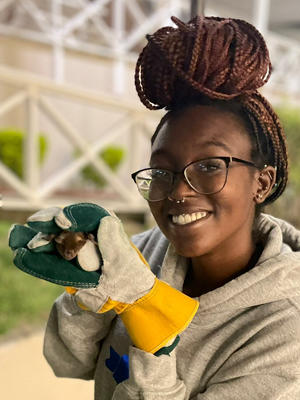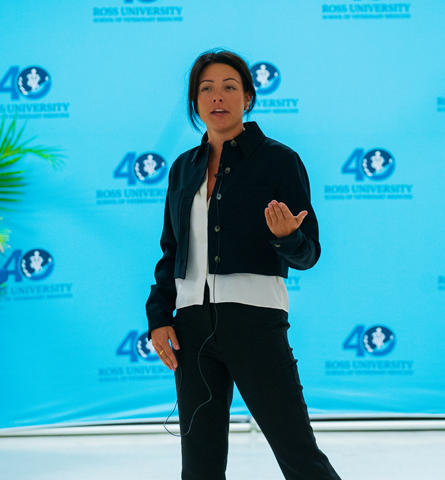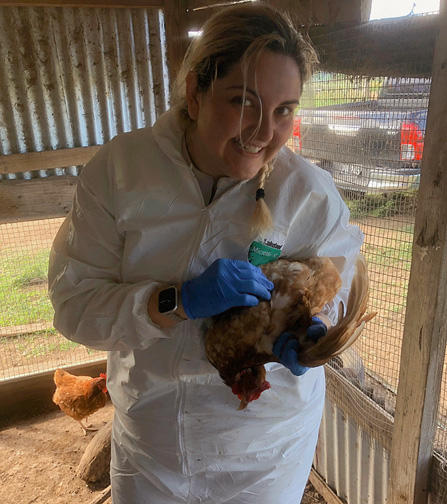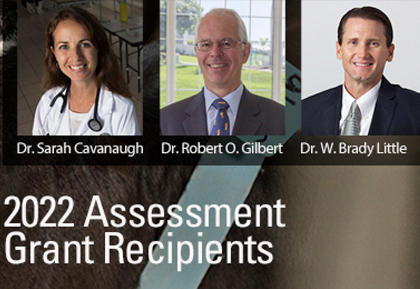Growing up on the south side of Chicago, Dazjah Samuels didn’t encounter many bats. But her childhood love of animals, from squirrels in the park to neighborhood pets, now includes researching global bat populations as a class of ’24 Doctor of Veterinary Medicine student at Ross University School of Veterinary Medicine (Ross Vet). That work has now earned her a prestigious recognition as a Morris Animal Foundation (MAF) Scholar.
The MAF Veterinary Student Scholar program provides the opportunity to conduct mentored research to advance the health and well-being of animals. As a Veterinary Student Scholar, Samuels was awarded a stipend to support her research project: You Are What You Bat'sorbing: Using Non-Targeted Metabolomics to Identify Emerging Environmental Pollution Threats to Bats. The project is a collaboration with Sarah Hooper, DVM, MS, PhD, and Natalie Ragland, DVM, DACLAM, both associate professors at Ross Vet.
“Dr. Hooper has been seeing a decline in the global bat populations that can be associated with things such as white nose disease and other diseases like rabies,” said Samuels. “We have an inclination that pollutants such as pesticides and insecticides may also be contributing to these declining populations.”
WORKING WITH RUSVM FACULTY
Samuels has been helping Drs. Hooper and Ragland by safely catching and releasing bats in St. Kitts to get hair samples that are analyzed for pesticides they could possibly be absorbing. This ongoing research led to her selection last summer as a Foundation for Food and Agriculture (FFAR) Fellow. Once the results are finalized, Samuels and Drs. Hooper and Ragland will present to the FFAR at their 2023 conference.
“This has been my first attempt at participating in research, so to be granted not just one, but two scholarships, is a ‘wow’ moment for my journey,” said Samuels. “All the hard work to get here is paying off.
“I encourage all my peers to get involved in research. Whether it's wildlife, small animals, exotic animals, or any of the vast number of animal groups, there are things you can discover about this world that people haven't yet discovered. Research is an open book to explore what you want to learn and want others to learn about animals,” said Samuels.
Along with her first research project that has garnered recognition from the MAF and FFAR, she spent one year serving as president of the Student National Association for Black Veterinarians, a student-run chapter that provides mentorship, professional development, career planning, and a safe space for Black students to speak openly and freely about their experiences in and out of the classroom.
“I can't wait to start clinical rotations and finally be one step closer to my dream, but my time on St. Kitts coming to a close is sort of surreal. I've been on the island for two years and am grateful that I got a chance to leave home, explore a new part of our world, experience a different culture, and learn to become what I have aspired to always be.”
About Morris Animal Foundation: The MAF was established in 1948 dedicated to support science and research to advance animal health. Over the last 75 years, the MAF has invested more than $149 million toward nearly 3,000 studies that have led to significant breakthroughs in diagnostics, treatments, preventives, and cures benefiting companion animals, horses, and wildlife globally (source).
Related Articles:







